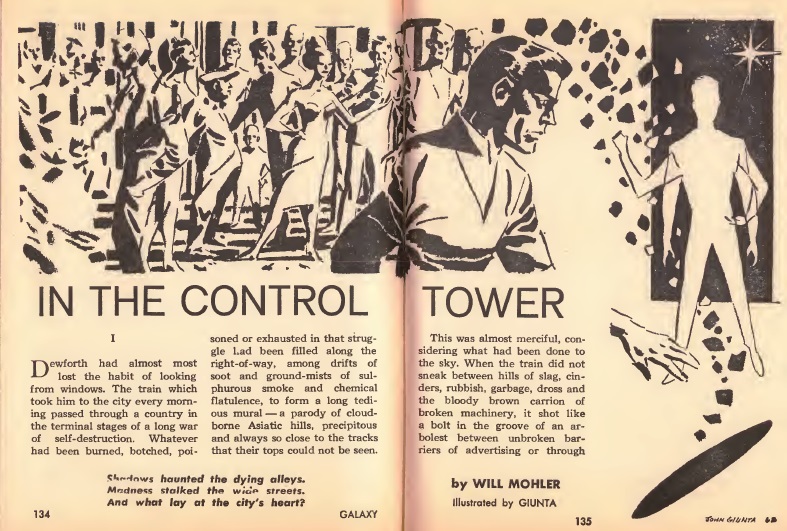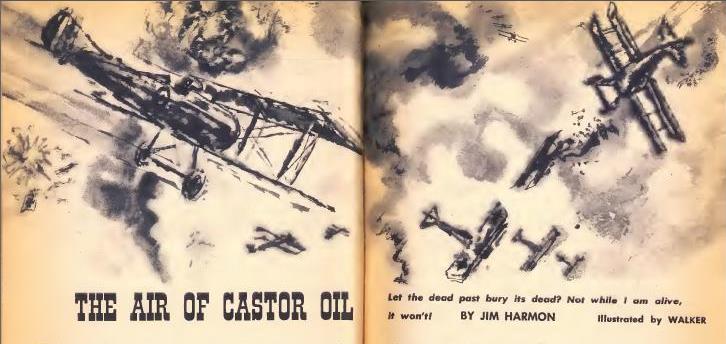
by Gideon Marcus
Marching as to War
November 11 used to be the federally mandated holiday set aside for the honoring of World War I veterans. After "The Great War" was eclipsed by later conflicts, the day's scope became more general, dedicated to veterans of all wars. And so, parades like this one in Walla Walla, Washington, featuring soldiers from as far back as the Spanish American War, have become an annual tradition.

Of course, in Las Vegas, it was a day like any other. Well, the show must go on…

It is no surprise that, given this particularly bloody century (which saw the American Civil War, two world wars, the Korean War, the Russian Civil War, the Spanish Civil War, the Chinese Civil War, etc. etc.) that war is a perennial theme in science fiction. But where war was once portrayed in a patriotic light, or at least, merely as an exciting backdrop for adventure, we are now starting to see a decidedly cynical tinge to modern SF war stories.
And there is no finer example of this trend than this month's superb issue of Galaxy. Read on and find out why:

The Starsloggers, by Harry Harrison
The biggest military science fiction hits of the last five years run the gamut from novels like Heinlein's ultra-jingoistic Starship Troopers and Dickson's Hornblower-esque Dorsai! at one end, through the more nuanced "Joe Mauser" series by Reynolds and the latest Starwatchman, by Bova, to anti-war pieces like Dickson's Naked to the Stars.
But there has never been such a biting, such an accurate, and such an eminently readable satire of the veteran's experience as Harry Harrison's new novel, The Starsloggers.
Bill, a backwoods hick with dreams of becoming a Technical Fertilizer Operator, is shanghaied into This Man's Space Navy. Thus ensues months of grueling, dehumanizing boot camp under the merciless lash of the fanged Drill Sergeant, Deathwish Drang. But these torments are as nothing when the entire training division is drafted into an all-out war against the saurian "Chingers", whose greatest offense is that they exist.
Bill is pressed into serving as a fusetender, sweating profusely while he watches for the big red band on the six-foot weapons fuse to turn black, and then replacing it with another monstrous device. It's a position that normally takes the better part of a year to learn the intricacies of, but needs must, and somehow Bill and his brood learn the ropes in about fifteen minutes.
Along the way, Bill meets such notable characters as "Eager Beager", a perennially smiling chap who loves to shine everyone else's boots; Tembo, a proselytizing zealot who refuses offers to muster out; a nameless ship's chaplain who doubles as the laundry officer…and on and on. All of them are ridiculous, yet strangely plausible.
Ultimately, Bill ends up in a Southeast Asia analog, fighting to preserve a 10-mile square postage stamp of land against a limitless enemy in the foggy jungle. This is the kind of story where the protagonist is punished for bravery and rewarded for self-interest, and suffice it to say, by book's end, The Starsloggers earns the ironic subtitle: Bill, the Galactic Hero.

Satire is hard. Comedic satire is harder. It's easy for a story to devolve into silliness, and it's harder still to maintain the joke and readability throughout novel length. Harrison manages to lambast every sacred cow in the military barn, all while making a story with just enough reality and interest to keep the pages turning.
The Starsloggers should be required reading for anyone who reads Starship Troopers, if anything to keep too many Eager Beagers from enlisting. Five stars.
The Rules of the Road, by Norman Spinrad
In this, Norm Spinrad's second appearance outside of Analog, a death-defying mercenary is hired to explore an alien dome that has mysteriously appeared on Earth. Nine men have gone in before; none came out. Can the mercenary survive the strange geometries and lethal traps of the dome? And what will he be when he comes out?
An interesting piece, though perhaps 20% too padded and without a great deal of consequence. Three stars.
Ballad of the Interstellar Merchants, by Sheri S. Eberhart
The third poem from this author; a pleasant 24th Century space shanty. I imagine someone will put music to it and we'll hear it at Westercon next year. Three stars.
For Your Information: The Rarest Animals, by Willy Ley

The latest from Veelee, the good German, is a piece on endangered species thought to be extinct…but aren't! It's quite good, except it just abruptly stops without any kind of conclusion. I hope he didn't have a heart attack at the end!
Three stars.
The Monster and the Maiden Roger Zelazny
One of the genre's newer lights offers up this silly little piece, about virgin sacrifice and turnabout. It's worth a chuckle. Three stars.
A Man of the Renaissance, by Wyman Guin

Last time we saw Wyman Guin, he offered up a political piece set in a delightfully unique world. With Renaissance, the author has outdone himself.
The story is set on a water world, on whose oceans float islands of vegetation-lashed pumice. Their dwellers are reduced to a resource poor and medieval existence. But one latter-day Leonardo, Master of the Seven Arts, would risk love, limb, and life to effect a daring plan: to bind three small land masses together. To accomplish this, he must overcome prejudice and adversity, and plain, hide-bound stubborness.
Renaissance starts a little choppily, confusing since the context only comes gradually, and I found the combat scenes a little inexpert. But everything else, particularly the worldbuilding, is simply marvelous. I tore through it in no time…and then found myself trying to figure out how to make a wargame out of the setting!
Four stars.
Let Me Call Her Sweetcore, by David R. Bunch
Bunch, of course, is best known for his tales of Moderan, where humanity has become increasingly roboticized. Sweetcore seems to take place in an adjacent universe; it is a love story about an old man, his overly emotional robot, and the girl robot whom it falls in love with.
I both appreciated the story's juxtaposition of the maudlin machine and its emotionless master, while at the same time being annoyed with the stereotypical portrayal of love and marriage.
A low three stars.
To Avenge Man, by Lester del Rey

We end with another robot story, which is also a war story. Sam, a sentient Mark I machine assigned to a small moonbase, is left behind when the scientific team is recalled to Earth. Shortly thereafter, the planet flares into myriad pinpoints of brilliance before going dark. Now Sam is truly alone.
The first half of the piece, where Sam becomes fully actualized after reading the base library, is quite compelling. But the latter half, in which Sam looks for humanity's remains in vain, deduces that we were destroyed by Wellesian aliens, and leads a galactic crusade to punish them, is both redundant and revealed in the story's prologue.
Sadly, this reduces what could have been a four star story to readable three.
Yin's Yang
I lamented that this month's IF was decidedly subpar, and per Victoria Silverwolf, Worlds of Tomorrow wasn't much better. But Galaxy, the old warhorse of Editor Fred Pohl's stable, remains a sterling example of how to do science fiction right. Just the Harrison and the Guin would have made a full, 4.5 star issue of F&SF. It's ones like these that have kept me a faithful subscriber for 14 years, and I don't see myself bugging out any time soon.

[Come join us at Portal 55, Galactic Journey's real-time lounge! Talk about your favorite SFF, chat with the Traveler and co., relax, sit a spell…]

![[November 15, 1964] Veteran's Triumph (December 1964 <i>Galaxy</i>)](https://galacticjourney.org/wp-content/uploads/2019/11/641115cover-432x372.jpg)

![[November 9, 1963] Change and Constancy (December 1963 <i>Galaxy</i>)](https://galacticjourney.org/wp-content/uploads/2018/11/blog631109cover-400x372.jpg)













